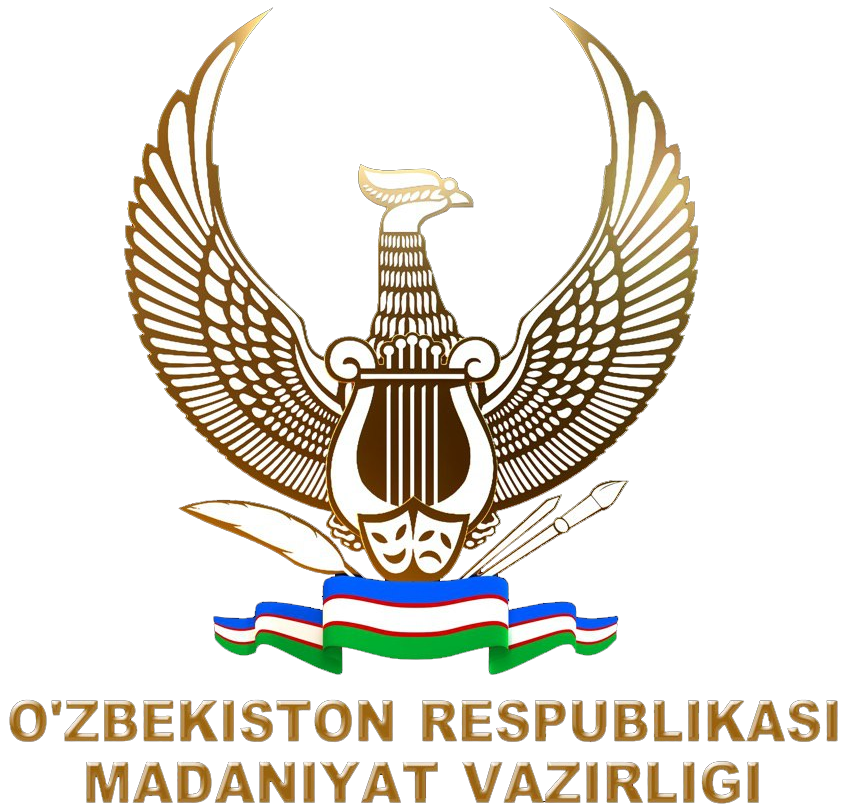REGULATION ON THE PUBLIC COUNCIL UNDER THE MINISTRY OF CULTURE OF THE REPUBLIC OF UZBEKISTAN
2024-09-30 18:00:00 / News
Chapter 1: General Provisions
-
This Regulation defines the main tasks, functions, powers, and the procedure for organizing the activities of the Public Council under the Ministry of Culture of the Republic of Uzbekistan (hereinafter referred to as the Ministry) and the Public Council.
-
The Public Council is a permanent advisory body operating on a public basis.
-
The Public Council is established under the Ministry.
-
The Public Council is formed by the Ministry's order.
-
The decisions of the Public Council are advisory in nature.
-
The Public Council shall act in accordance with the Constitution of the Republic of Uzbekistan, laws, decisions of the chambers of the Oliy Majlis, decrees, decisions, and orders of the President of the Republic of Uzbekistan, decisions and orders of the Cabinet of Ministers of the Republic of Uzbekistan, ministry orders, this Regulation, and other legal documents.
The views and actions of the members of the Public Council that are outside the purpose or main tasks of the Public Council and not agreed upon with the Ministry do not represent the position of the Public Council.
-
This Regulation and any changes or additions to it are approved by the Ministry's order.
-
The Ministry organizes training courses to enhance the knowledge and skills of the members of the Public Council in the relevant field.
Chapter 2: Purpose, Main Tasks, Functions, Rights, and Obligations of the Public Council
- The purpose of the Public Council is to assist in improving the effectiveness of the policies and measures being implemented in the field of culture and art in the Republic of Uzbekistan.
To achieve this purpose, the Public Council performs the following tasks:
- Preservation and increase of the national cultural and spiritual heritage, development of art and artistic creativity, and encouragement of raising the moral and cultural level of the people.
- Promote the values of independence, high spirituality, and humanism, strengthen immunity against harmful ideas like radicalism and extremism, and conduct public-cultural events aimed at meeting the growing intellectual and cultural needs of society.
- Promote the development of artistic creativity, including theater, music, choreography, pop art, circus, and folk applied arts, and support the creation of works reflecting the history and democratic development of the country.
- Strengthen the material and technical base of cultural institutions and improve their effectiveness.
- Cooperate with state bodies, local government authorities, public organizations, educational institutions, creative unions, and other entities to improve the effectiveness of cultural and creative institutions.
- Ensure the consistent implementation of state policies aimed at fostering interethnic harmony, tolerance, and respect for national and universal human values.
- Analyze and provide recommendations on the results of public opinion and media coverage of the Ministry's activities.
- Facilitate scientific research aimed at strengthening international relations and developing friendships with foreign countries.
- In order to fulfill its tasks and functions, the Public Council may:
- Express and discuss expert opinions on the issues on the agenda and draft documents related to culture and art.
- Provide materials for discussion by the Public Council and Ministry leadership.
- Participate in public events organized by the Ministry.
- Make proposals on issues falling under the Public Council's competence.
- Collect and review complaints against the Ministry and its employees and make necessary recommendations.
- The Public Council, in its activities, will:
- Adhere to the laws on public control.
- Not interfere with the activities of Ministry employees within their authority.
- Not hinder the work of Ministry staff.
- Not spread unverified information about individuals or entities related to corruption.
Chapter 3: Formation of the Public Council and the Rights and Obligations of Members
- Members of the Public Council must generally possess higher education, have specialized knowledge and skills in the field of culture and art, and be able to propose practical measures for the development of the field. Members must also have an exemplary track record in the field.
The selection of members is conducted by the Ministry based on established deadlines, requirements, and formats.
The number of members of the Public Council may be set between 15 and 25.
-
The composition of the Public Council is approved by the Ministry's order every two years.
-
The Public Council consists of the chairman, deputy chairman, and members.
-
The chairman and deputy chairman of the Public Council are elected from among its members based on the Ministry’s recommendation.
-
The Public Council members may be removed from their positions in cases such as:
- Voluntary resignation.
- Violation of ethical or legal standards.
- Misuse of position for personal interests.
- Changes to the composition of the Public Council are published on the Ministry's website within five days of approval.
Chapter 4: Organizing and Holding Public Council Meetings
-
The main issues of the Public Council are discussed at its meetings, which are held at least four times a year. Extraordinary meetings can be called upon written request from one-third of the members.
-
The time, date, location, and agenda of meetings are communicated to members at least three days in advance.
